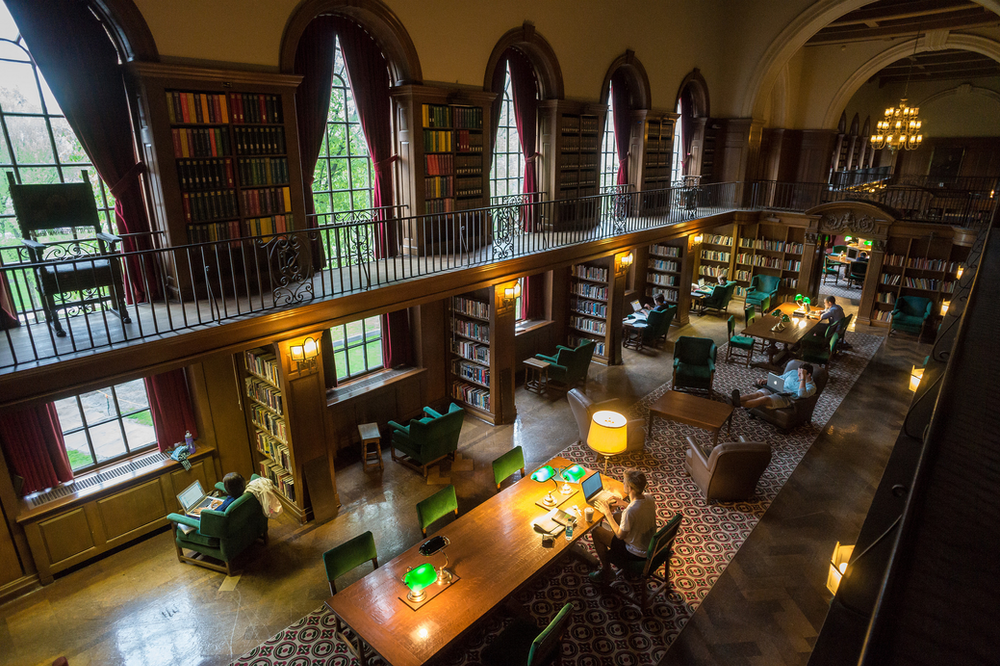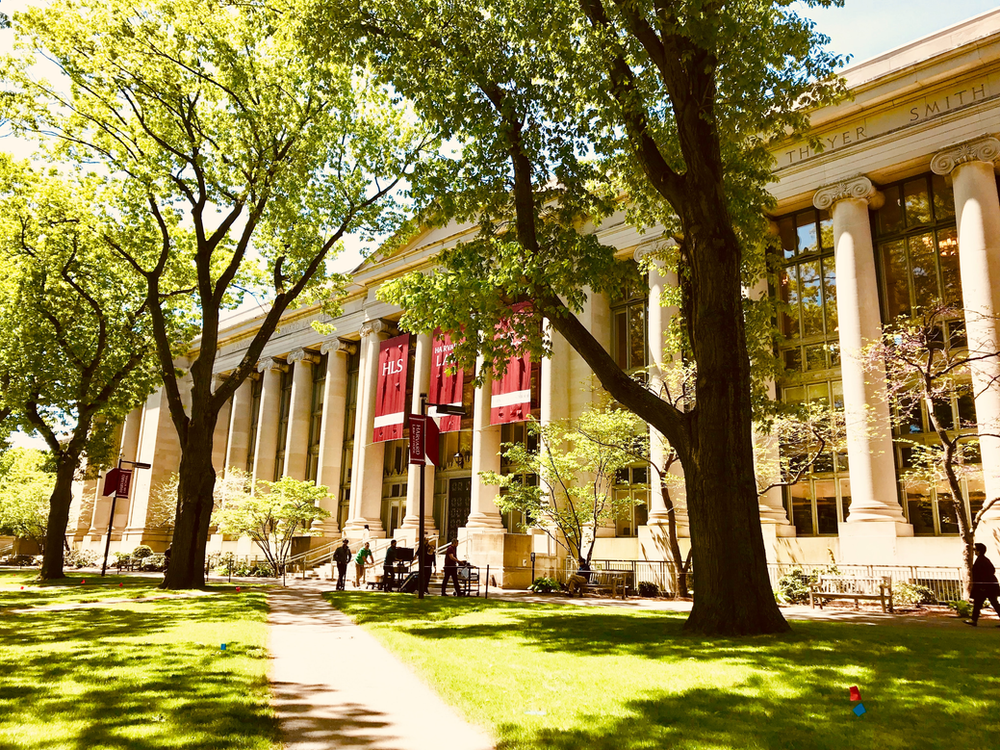Adrianne is a college admissions consultant and TV/film director, producer, writer, and actress currently based in LA. She uses her experience in multiple disciplines to help students achieve their personal and academic goals.
It’s that time of year again — Ivy Day 2023! After months of hard work, thousands of applicants across the country have eagerly been awaiting news about whether they will be accepted into an Ivy League university. On the evening of March 30th, 2023, each school will finally reveal its admissions decisions, and students around the world get to learn the fate of their college applications.
If you’re one of those students, here is your guide to navigating Ivy Day 2023.

Yale University Commencement
Back in the fall of 2022, high school students around the world were preparing their applications to colleges and universities around the world in time for the Early Action/Decision or Regular Decision deadline, especially for the eight schools that are part of the ,Ivy League: Harvard University, Yale University, Princeton University, Brown University, Columbia University, Cornell University, University of Pennsylvania, and Dartmouth College. Although the Ivy League is actually just a collegiate athletic conference comprising these eight schools, the term now alludes to the prestige of these institutions, all of which are widely considered ,the best schools in the country. That means that the annual college admissions process at each Ivy League School, which culminates in the upcoming “Ivy Day,” is extremely competitive.
These competitive schools, many of which students consider “dream schools,” usually receive thousands upon thousands of compelling college applications in both the early and regular decision cycles — for instance, for the Class of 2026, Harvard University ,received 61,221 undergraduate applications with only 1,984 admitted students. Those numbers indicate that the vast majority of applicants do not have any guarantee of getting in and that the college admissions landscape is becoming more cutthroat.
However, that doesn’t mean students should totally give up hope that they will receive that coveted acceptance letter! Regardless of low acceptance rates, actual chances of acceptance vary widely based on myriad factors — that’s what the term “holistic college admissions” refers to. So don’t take those Ivies off your college list, and make sure you still get in your application by the Regular Decision deadline.
As we approach the end of this year’s application cycle, students will be receiving their admissions decision very soon, so here’s everything you should know about Ivy Day 2023. If you got your application in on time for the Regular Decision deadline or are awaiting an update from a deferral from an Early Action program from an Ivy League School, you’ll want to read on!
Harvard Law School
Table of Contents
What is Ivy Day?
For the past several years, Ivy League admissions committees have all released admission decisions on the same day at the same time, usually on a Thursday at the end of March or at the beginning of April and often around 5-7 PM Eastern Time (since all of these schools are on the east coast of the US). This is what is known colloquially as “Ivy Day.” This year, Ivy Day happens to fall on March 30th, 2023, and the admissions decision release time is around 5 PM Eastern Time.
Regardless of whether or not students applied via Early Action/Decision or Regular Decision, unless you’ve already been accepted or rejected, you’ll hear something back then.
What can I expect from Ivy Day?
As you probably guessed, everything will be virtual — long gone are the days of just judging the size of the envelope to determine whether or not you got in! If you’re awaiting college admissions decisions from any Ivy League school, you should make sure to keep a close eye on the email you used for your application, as this is how admissions officers will notify you of their decision. You’ve probably already made an account on their respective admissions websites or portals, so the link in your email will likely redirect you there.
There are three possible outcomes: accepted, rejected, or waitlisted. If you applied via the Early Decision or Early Action program and were deferred, this is the final decision you’ll receive from the school (unless you were waitlisted). If you applied via the Regular Decision program, this is the first thing you’ve heard back, and if you got one of the first two outcomes, this is the final say.
Waitlisted students will be the only students thrown into admissions limbo. if you’re one of these waitlisted students and want to learn more about how to increase your chances of getting in, you can check out ,my blog post on the subject here.
As explained above, most applicants get rejected — ,acceptance rates in the Ivy League range from 6.9% at Cornell University (estimated — Cornell did not provide exact admissions data in 2022) on the high end to 3.19% at Harvard University on the low end. If you’re just looking at acceptance rates from the Regular Decisions admissions cycle, Harvard’s acceptance rates drop to 2.3%. Thus, admissions rates drop significantly because the number of open spots does not necessarily increase at the same rate as the number of applicants in the Regular Decision.
Again, that is not meant to discourage you from applying — if you do receive a rejection letter from an Ivy League school, you’re in good company. And it doesn’t mean that your college journey is over by any means. There are still plenty of other excellent schools available to apply to and attend.
And if you are accepted into an Ivy League school, congratulations! The next step is to ensure that this is still the best-fit school for you, disregarding the name-brand of an Ivy League school. Make sure that attending your school of choice is a financially viable option by consulting the financial aid office, and plan an extra campus visit if you can, ideally one that coincides with an admitted students’ weekend.

Baker Library at Dartmouth College
This is an exciting but stressful time for so many students awaiting their admissions decisions. It’s been months since the Regular Decision deadline, meaning the anxiety has been building alongside many students’ senior year festivities. If you’re receiving a decision on Ivy Day, go easy on yourself and ,take care of your mental health. You are not defined by where you go to school, and, as clichéd as it may sound, you will end up where you’re meant to be!
What should I do if I’m accepted?
Congratulations! You have put in the hard work throughout high school, and you’ve been accepted to one (or more) of the most elite schools in the country.
Make sure, however, you don’t just accept the offer because of the name brand — if you can, plan to attend the admitted students’ weekend and get a sense of what the college experience is actually like. Consider the offerings of your ideal major and the kind of extracurricular activities you might partake in. If you’re struggling with the high price tag of one of these prestigious universities, consult the financial aid office to see if they can recalculate your financial aid package.
What should I do if I’m waitlisted?
If you’re waitlisted at an Ivy League school, it means that the admissions office believes you could be a successful student at their institution, but they were unable to offer you admission right away. You still have a chance at getting admitted, but it’s going to take some extra effort on your part.
Schools like Harvard and Yale can accept anywhere from 0 to 100% of their waitlist, and the size and characteristics of each school’s waitlist vary widely based on the larger applicant pool. In short, it’s much harder to “predict” your chances of admission.
Still, the best way to increase your chances of admission is to submit a letter of continued interest. This is a letter to your admissions officer in which you explain why the school should admit you and provide any updates on your academic or extracurricular activities since you applied. You can find your admissions officer’s contact on the school’s website — each admission officer handles a certain region of the U.S. and then international regions — but use that information widely as being too in contact can harm your chances of admission.
Even if you’re still set on attending your Ivy of choice, it’s still a smart idea to submit a deposit at another school you were accepted to so you’ll have a guaranteed spot at a school come fall.
What should I do if I’m rejected?
If you receive a rejection letter from an Ivy League school, remember that it’s not the end of your college journey. There are still plenty of other great schools out there for you to consider. Plus, many other talented applicants also got rejected, so while it may not be comforting to hear now, you’re in great company.
It’s important to take a step back and reflect on why this school might not have been the best fit for you. Don’t be discouraged — take this time to explore other options, and don’t be afraid to reach out to the admissions staff at your target schools if you have any questions.
Overall, Ivy Day is a time of great anticipation for students across the country. Regardless of what the outcome may be, there are still plenty of options available to you. It’s your education — make the most of it!
Looking for help with your Ivy League college applications? Check out our guide here, or set up a free consultation with one of our experienced college admissions counselors.




